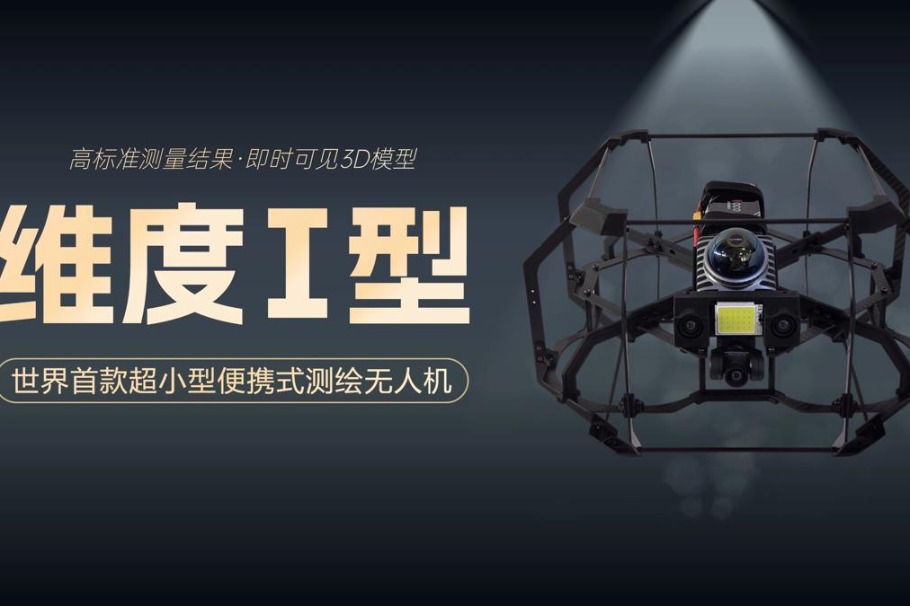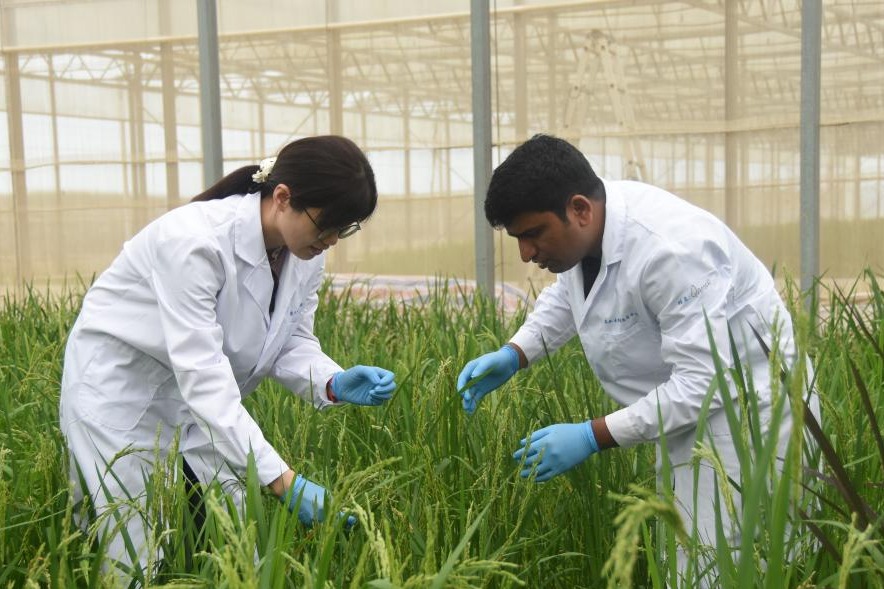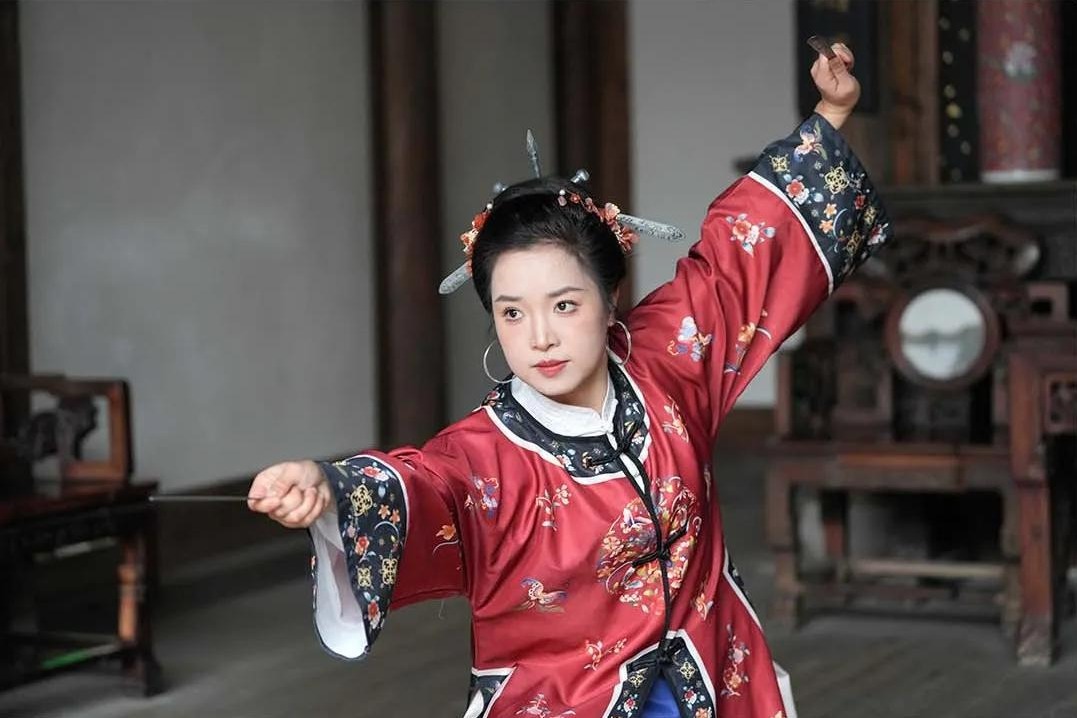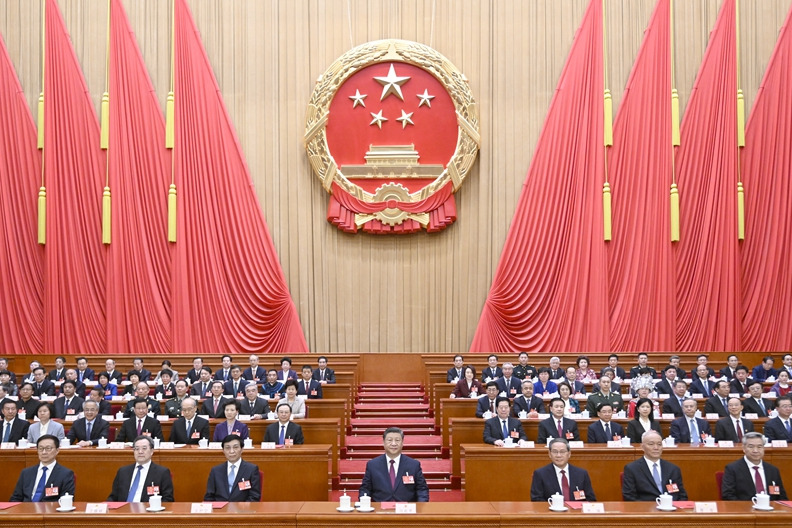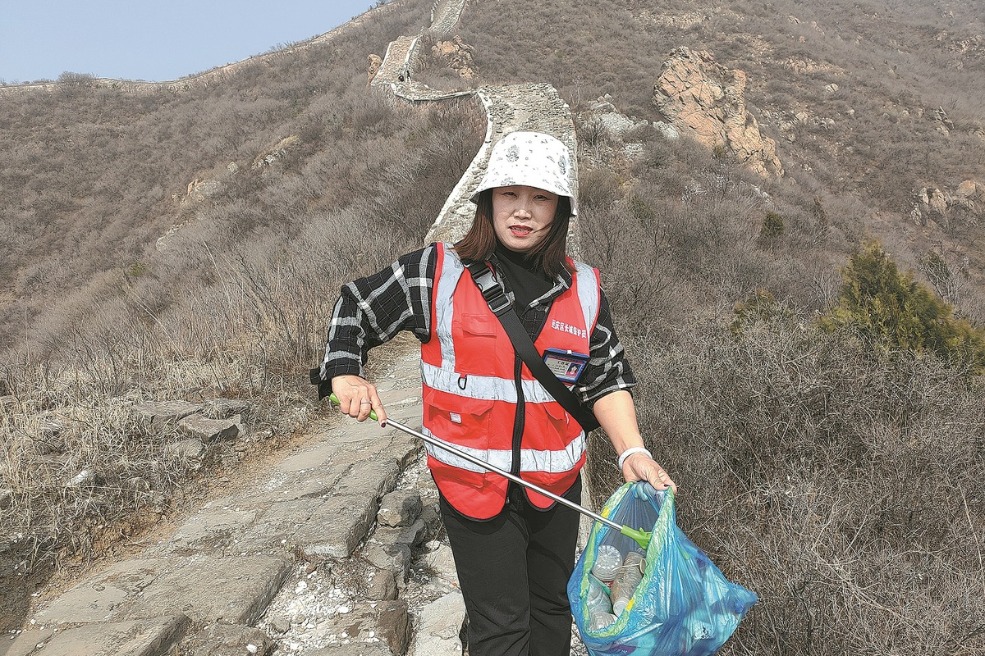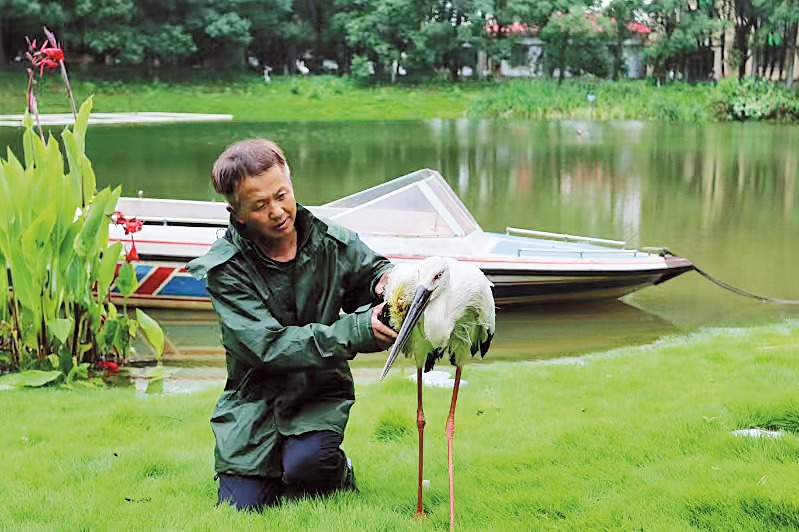Professors, students cautiously welcome AI

For Han Tianchu, an English major student at Tsinghua University, artificial intelligence has become a double-edged sword — both a convenient tool for learning and a source of anxiety about the future of liberal arts disciplines.
As AI tools such as DeepSeek gain traction in academia, students are confronting the practical applications and dilemmas posed by these technologies.
"DeepSeek has comprehensively reshaped the value of the English major and pushed me to think about how I can cultivate skills that AI can't replicate," Han said, adding that it's no longer enough to just be good at language or writing.
Han, like many of her peers, uses AI as an advanced search engine. "I rely on AI for basic information retrieval, such as understanding unfamiliar concepts or terms," she said. "It's like a browser with enhanced filtering capabilities, but I rarely use it for deeper academic tasks."
Han said she also used AI to polish her English writing, but never relied on it for content creation. She occasionally employs AI to streamline the literature review process when a research topic has an overwhelming amount of literature.
However, Han said the tools are helpful but not indispensable. Her cautious approach stems from concerns about AI's reliability. "When I test AI with professional content from classes, I often find factual or interpretive errors," she said.
As a result, she cross-checks AI-generated information with original sources, especially for assignments or papers.
Unlike previous tools, DeepSeek's ability to generate insightful Chinese texts has not only impressed Han and her peers but also sparked introspection.
DeepSeek's writing isn't just about language proficiency, Han said. "It demonstrates a capacity for observation, critique, and reasoning," she said, adding that it's a challenge to the very essence of liberal arts education.
Meanwhile, AI experts and professors of prestigious higher education institutions are more optimistic about the emergence of large models such as DeepSeek.
Huang Hua, dean of the School of Artificial Intelligence at Beijing Normal University, said the arrival of DeepSeek marks a turning point for AI in higher education.
With the model's recent open-source release, the cost of deploying AI tools has decreased. Since the Chinese New Year late last month, dozens of universities have implemented DeepSeek. Similar low-cost and high performance tools will soon be widely adopted across the country, Huang told China Daily in a recent interview.
"AI tools will comprehensively upgrade the quality and efficiency of teaching and academic research in universities, much like how information technology fueled the industrial revolution," he said.
According to Huang, AI tools are becoming invaluable assistants to scholars. They excel at efficiently retrieving literature, distilling core content into clear summaries, answering queries, offering experimental design recommendations based on existing research, and refining written text.
"In my own experience, scholars and students are eager adopters of these tools, actively incorporating them into their research and teaching practices," Huang said.
Lu Diannan, a chemical engineering professor at Tsinghua University, has applied the university's AI teaching assistant into the course of Chemical Engineering Thermodynamics.
Since the tool's implementation in September 2024, 68 students in the class have used the AI teaching assistant. According to Lu, the average usage time for each student was more than eight hours. The number of questions students posed to the AI assistant was greater than what could be answered in typical office hours, Lu said.
While only 2 percent of the students followed 15 types of recommended questions prompts, the remaining 98 percent created their own inquiries, showing that students were deeply engaging with the tool and even debating with it, he said.
However, as AI tools become increasingly integrated in education, questions about their impact on student development and ethical concerns arise.
One of the most common concerns regarding AI tools in education is the potential for students to use them as shortcuts for homework and assignments. "While AI is permitted for use in my assignments, students are required to clearly indicate which parts of their work were assisted by the AI," Lu said. "This ensures the maintenance of scientific integrity and fosters ethical learning practices."
Lu further explained that assignments fully generated by AI often lack depth. However, those that involved back-and-forth interaction with the AI produced more comprehensive and interdisciplinary answers, he added.
"The key to preventing students from relying too heavily on AI to complete their homework is in the design of assignments. If students are encouraged to engage with AI tools in a more interactive and reflective manner, they are more likely to invest time in critical thinking and refining their ideas," Lu said.
In addition, although AI is used to support teaching in classrooms, it must continue to evolve. Over the winter break, multiple models were integrated into the system, improving the AI assistant's capability to process more complex technical content, he said.
Huang also called for embracing AI as a powerful tool to enhance human intellect rather than fearing dependency. "The traditional model of education, which focuses on knowledge transmission, is increasingly inadequate in the AI era. AI makes accessing knowledge easier, but it also requires students to hone their critical thinking and advanced reasoning skills," he said.
In response to the concern of over-reliance on AI, Huang took the invention of calculators as an example. Calculators greatly enhanced computational efficiency and left people with time and energy to focus on more valuable tasks, while their widespread use has led to a decline in mental arithmetic skills.
However, nowadays, few people are concerned about over-reliance on tools like calculators, Huang said.
"AI tools should be viewed as a means to elevate our cognitive abilities, not replace them. With appropriate use, these tools will help students and educators develop their abilities to meet future challenges," he added.
- Professors, students cautiously welcome AI
- Tianjin official faces graft probe
- Job fair for robots in SW China sci-tech hub showcases AI-driven healthcare innovation
- Study reveals microbial adaptation mechanism of plateau animals
- Chinese scientists conduct detection experiment on Antarctic ice cap
- Chinese engineers make sci-fi drone mapping reality
















